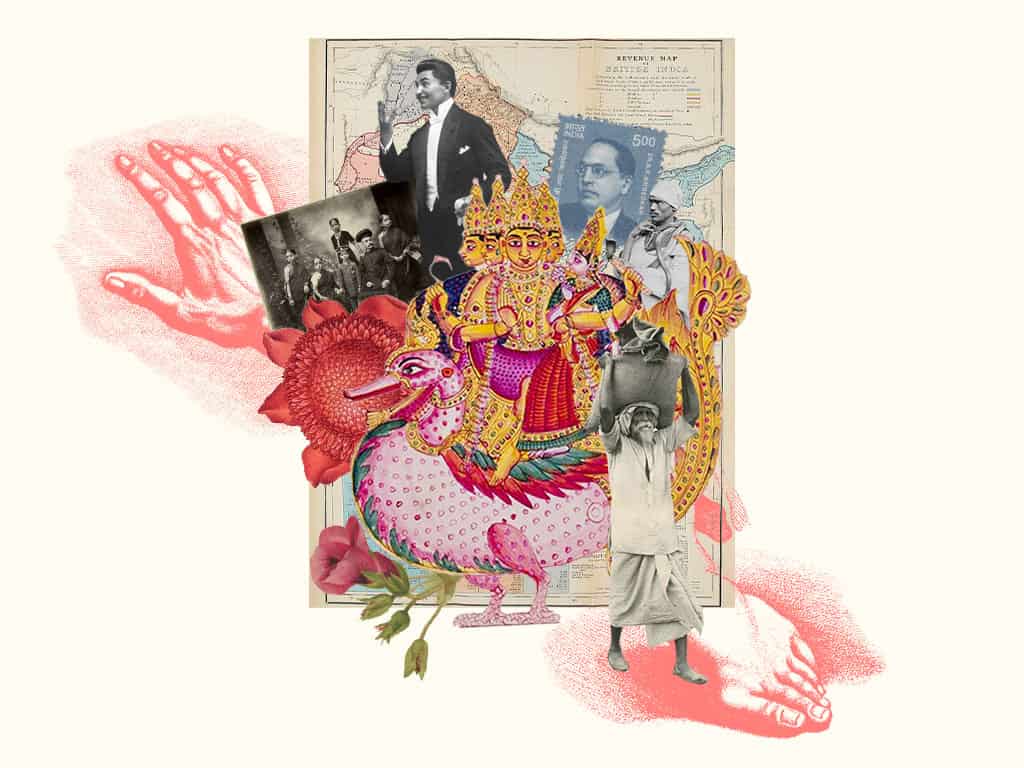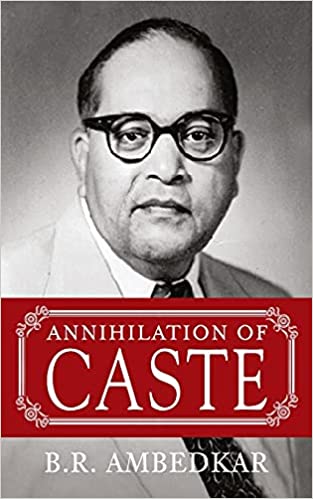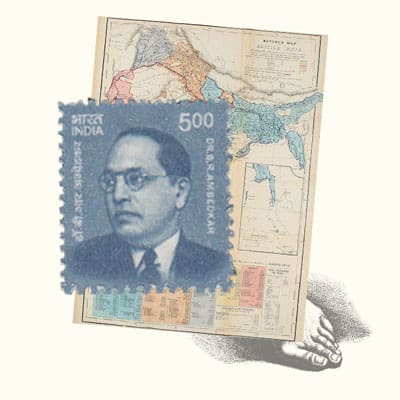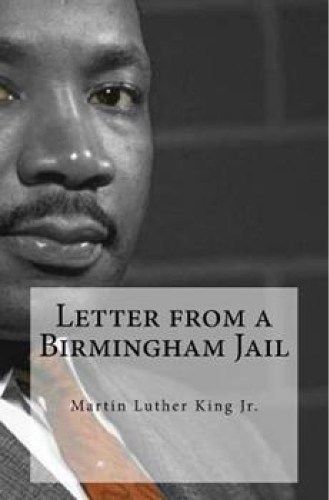Are you fit for political power even though you do not allow a large class of your own countrymen like the untouchables to use public school? Are you fit for political power even though you do not allow them to use public wells? Are you fit for political power even though you do not allow them to use public streets? Are you fit for political power even though you do not allow them to wear what apparel or ornaments they like? Are you fit for political power even though you do not allow them to eat any food they like?
B.R. Ambedkar

Annihilation of Caste
B.R. Ambedka

Annihilation of Caste B.R. Ambedkar Publisher: Delhi Open Books, 1st edition (May 10, 2020) AISN: B088FGCX32
The exhaustive text is a scathing critique of the Hindu caste system, a hierarchical system of social stratification and its origins are rooted in Sanskrit religious texts.
A speech that was never delivered the Annihilation of Caste by B.R. Ambedkar was self-published in 1936. The exhaustive text is a scathing critique of the Hindu caste system, a hierarchical system of social stratification and its origins are rooted in Sanskrit religious texts. The system constrains upward social and economic mobility of its lower classes through imposition of strict occupational, educational, and ritualistic restrictions. The system also prohibits social intermixing of classes. Ambedkar who was born a Dalit had experienced caste discrimination and firmly believed that India cannot achieve social or political rehabilitation without a complete restructuring of the Hindu society based on equality and complete dismantle of the caste system. The speech was composed at a time when the Indian national movement against the British colonization was gaining strong momentum, and Ambedkar in this speech calls out the Indian nationalist leaders, who were largely from the upper castes to support the complete demolishing of the caste system, which denied basic human rights to majority of its citizens and demanded a society based on liberty, equality, and fraternity.
Why This Text is Transformative?
The first and second year students can effortlessly relate to the arguments made by Ambedkar as many of students have experiences discrimination based on race, sexual orientation, religion, ethnicity, or class themselves or are aware about these discriminations as they are discussed in news or social media platforms.
Annihilation of Caste is an authoritative text about social hierarchy and denial of basic human rights. It discusses how one class constructs political, legal, and social systems through which basic human rights including right to education, occupation, movement, and freedom to consume food of one’s choice is denied to a large section of the society, who then are forced to live in abject poverty. The first and second year students can effortlessly relate to the arguments made by Ambedkar as many of students have experiences discrimination based on race, sexual orientation, religion, ethnicity, or class themselves or are aware about these discriminations as they are discussed in news or social media platforms. Faculty should consider using this text as it demonstrates the universal aspect of class division and how different communities have established diverse methods to control one class over another. The universal appeal of the text is illustrated in the recently published Caste: The Origins of Our Discontents (2020) by American journalist Isabel Wilkerson who in her book has argued that American racial division is a form of caste system and calls B.R. Ambedkar, India’s Martin Luther King Jr.
A Focused Selection
Study Questions

Students should be provided with a short history of South Asia and caste system before reading of the speech. Students should create a list of terms that are unfamiliar to them.
1) Students should be asked what do they understand by the caste system?
2) Closely examine the “laws” on page 5 that were dictated by the upper caste Hindus for the Balais community. Students should be asked to discuss the “laws” in detail. What was the punishment given to the Balais if they did not agree with the rules?
3) In part II of the speech why did the Hindus of Kavitha ordered the untouchables not to insist upon sending their children to the common village school?
4) Why do you think Ambedkar says that “A Hindu’s public is his caste”?
Building Bridges
Supplemental Resources
Article on Indian Caste System
Text Mapping
Discipline Mapping
Political Science/Government
Sociology
History
Philosophy & Religion
Page Contributor




